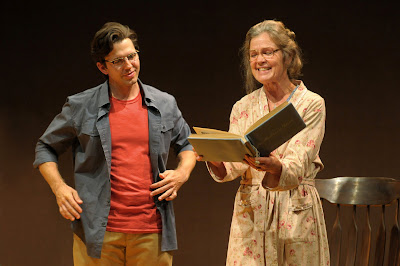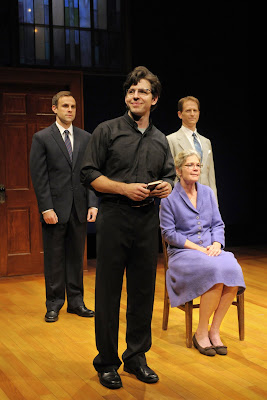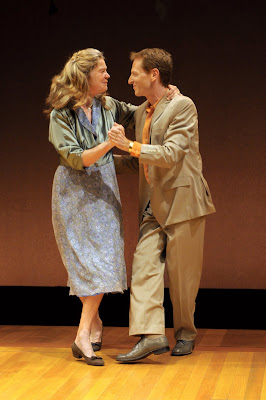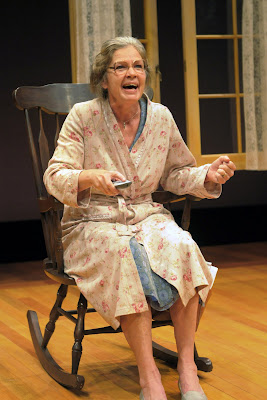











 A third lawyer in the firm is Susan (Susan Heyward), whose position becomes more and more convoluted as time goes on. She is an attorney, but she is also a black woman who is convinced Strickland is guilty. She knows in her heart that due to his influence her client will probably walk. This puts her in an uncomfortable situation.
A third lawyer in the firm is Susan (Susan Heyward), whose position becomes more and more convoluted as time goes on. She is an attorney, but she is also a black woman who is convinced Strickland is guilty. She knows in her heart that due to his influence her client will probably walk. This puts her in an uncomfortable situation.
 Broadway has always seen its purpose as entertainment, entertainment, entertainment. When 'Hair' hit the big stage in 1968 (after opening at Joe Papp's off-Broadway Public Theater a year earlier) it caused an uproar. Nudity! Social issues! Race! Gender! What will the neighbors think!
Broadway has always seen its purpose as entertainment, entertainment, entertainment. When 'Hair' hit the big stage in 1968 (after opening at Joe Papp's off-Broadway Public Theater a year earlier) it caused an uproar. Nudity! Social issues! Race! Gender! What will the neighbors think!


This reviewer has an elderly mother in declining health. Many of the issues in Bill Cain’s “How To Write a New Book for the Bible” hit home, especially as concerns the relationship of the mom, Mary (Linda Gehringer) with her younger son, thirtiesh Bill (Tyler Pierce), who has moved back home to care for her. Bill is a priest, but he is a son first. With all his theological underpinnings, Mom exasperates him. And when she says “it seems a shame to have gone through all this pain and not to have gotten better,” Bill and the rest of us all know exactly what she means. Life’s a bitch and then it’s over.

We love the illustrations of Mary and Pete's early years -- in many ways the backstory is as interesting as the current one.

Genius? Maybe not. It’s touching, but not particularly edifying. We know very little about Bill -- his explanation that he became a priest to take care of his functional family doesn’t make a lot of sense. Their are holes in the story that the author attempts to fill by philosophy which feel an awful lot like sermons. As in: here are my parents. They were happy. I believe this makes God happy.

But you never lose interest. Mom’s going to die – we know that already, from what Billy says early in Act 1 – and we wait to see exactly how. In the end, like she has done throughout her life, she makes out a list and executes it:
1) Get Billy Out of the House.
2) Get Paul Home.
3) Die.
Curtain.
RATINGS: ☼ ☼ ☼ BANG
The San Francisco Theater Blog Awards Division awards “How To Write a New Book for the Bible” Three Stars with a Bangle of Praise for Linda Gehringer’s ability to distill her lines into her facial expressions. She is a complex actor playing a complex role – it’s easy to see why Billy loves his mom as much as he does.
The biblical overtones to the story are the weak link. The story either doesn’t need them or needs more of them. We never do really get what the new book of the bible is or what it says or what its purpose would be. We’d like to know, or just call the show "Mom."
---------
“How to Write a New Book for the Bible”
Berkeley Rep, Thrust Stage
2025 Addison Street, Berkeley
Through November 20
$14.50-$73

BANG An especially fine moment
baub A particularly irritating moment
<¿> Something incomprehensible, where you scratch your chin and go "Waa-huhhh?"